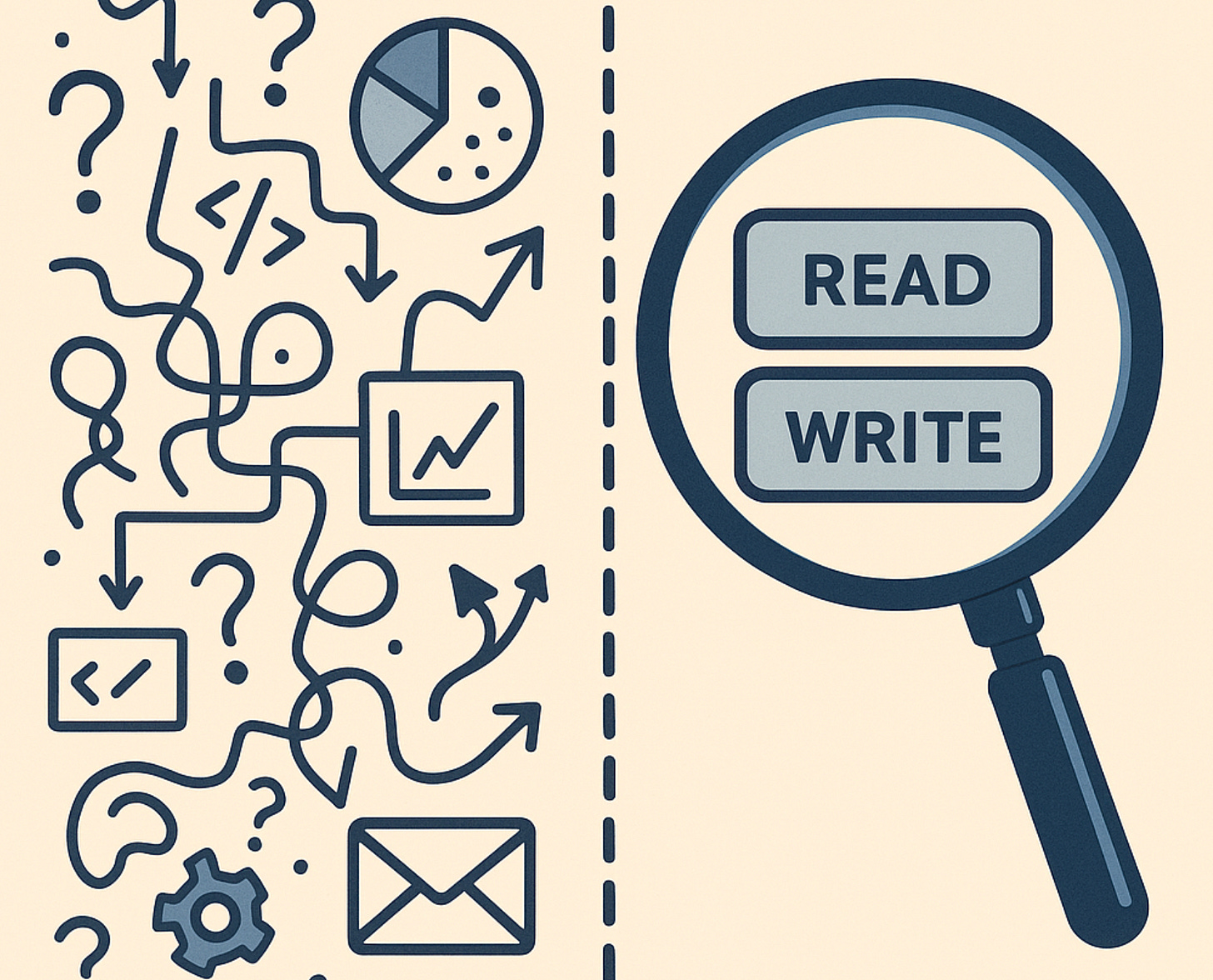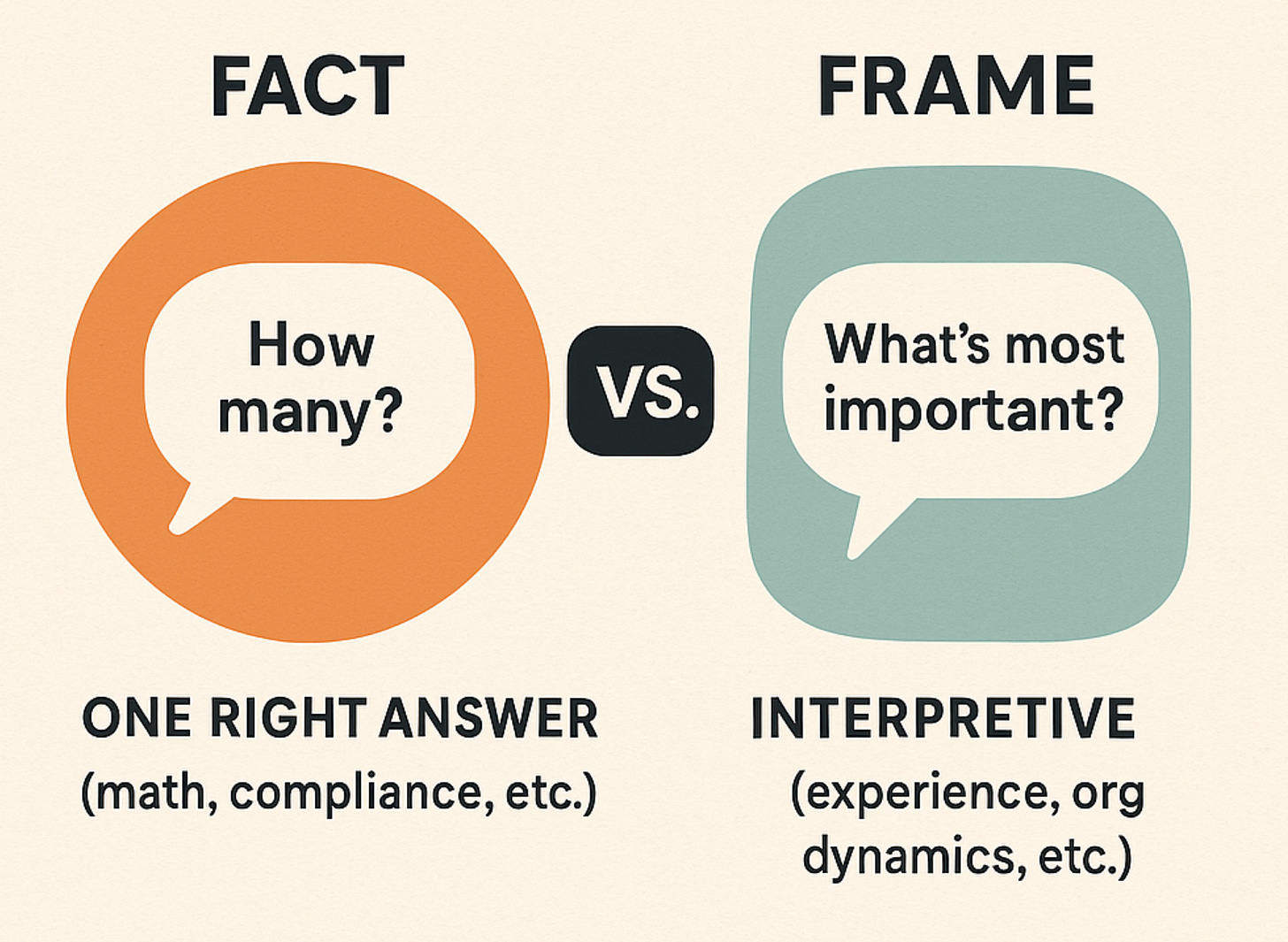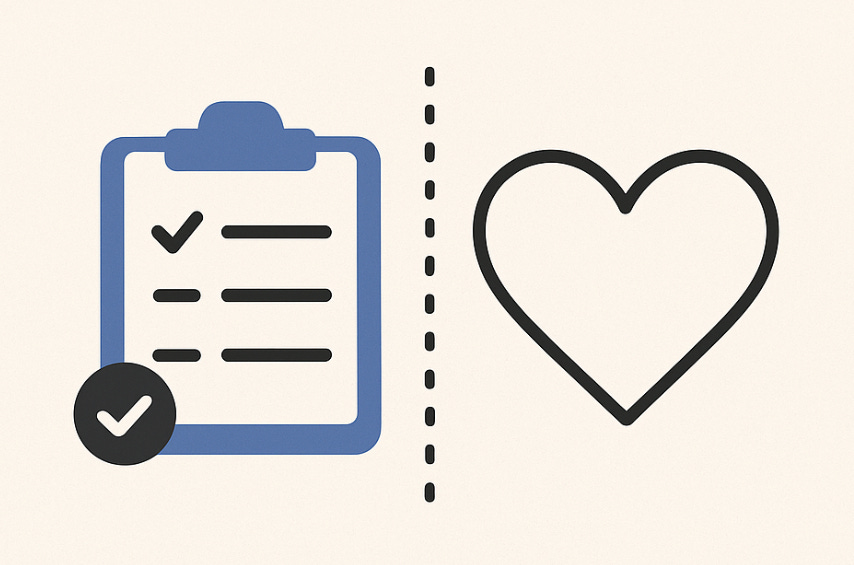Paradigms That Keep My Brain From Exploding
Simple ways to cut through confusion, avoid rabbit holes, and focus on what actually matters
I've used a few stupid-simple, broad-strokes mental shortcuts for years. I've never written them down. This seems as good a time as any.
They're not universal truths. But they've helped me navigate messy situations, get unstuck faster, and make clearer decisions in ambiguous work.
1. Start simple, then extrapolate from there
So many things in life are hard to grasp quickly. New ideas are everywhere from interpersonal dynamics to product strategies to technical systems. It takes time and effort to understand it all.
When I started my career, I constantly felt like I was playing catch-up because every new detail seemed to require this enormous mental investment. I'd obsess over all the information, trying to master it all at once. I'd get stuck in this loop of "I need to understand every variable before I can move forward." Then a few weeks or months later, I'd do it all over again. I see coworkers and friends fall into this trap over and over again.
Eventually I realized is that most things, no matter how domain-specific or complex, can be distilled down into something simple. And once I got good at finding analogies, it unlocked something game-changing: fundamental principles or patterns are shared across almost everything. If you spot the common foundation, you can learn everything fast and deeply, without actually needing all the details.
Take coding. At its simplest, functions exist to do one of only two things: write new information or read existing information. There are a million different gradients between the two, but if you zoom out far enough, it's only these two patterns.
Reading: understanding existing logic, consuming data, tracing flows.
Writing: creating logic, mutating state, expressing intent.
Similarly, there's a moment in any technical problem where you're either creating new logic or trying to understand existing logic. Writing mode is generative. Reading mode is interpretive.
Am I creating something new? Or understanding something that's already been created?
That same zoom-out lens works in decision-making too. Not everything has one right answer. And that brings me to the next paradigm.
2. The difference between facts and frames
I've noticed that most problems are approached as if they have one objectively correct answer. But in reality, they don't. This fallacy has led me into so many endless debates, draining meetings, and decision paralysis.
How many times have you sat in a room where people argue about the "correct" strategy, user flow, or team structure? Experience doesn't turn anyone into a fortune-teller, and most high-confidence assumptions are nothing more than strong opinions.
So here's a small trick that's kept me out of a lot of rabbit holes. Anytime you have a problem to solve, or if you start to get into a pissing contest over a specific solution, think:
Is this something that has one right answer? (math, compliance, binary processes)
Or is it interpretive? (user experience and motivations, "is this MVP enough?", org dynamics, etc.)
If it's the former, the answer is knowable, so finding the answer might be worth it.
If it's interpretive, you'll never find a right answer in advance. In these cases, start trying out different possible answers and see which solves your problem. Looking for a right answer is a waste of time.
And just because something's interpretive doesn't mean it doesn't matter. Or that it can't be measured.
3. Not all outcomes are measurable
No matter how many dashboards you monitor, how significant your A/B tests are, or how many commas are in your salary, some of the most important successes simply can't be quantified. I don't mean to be philosophical. This is practical.
The absence of a measurement doesn't mean the absence of impact.
I'll never forget what Janice Fraser told me: "A mistake people always make is thinking goals have to be measurable." Not everything that matters comes with a number attached.
Think about it: Every action ripples outward. Some effects show up immediately in your analytics. Others take months to surface. And some of the most profound results like building a reputation, making yourself or people trustable and resilient, or helping others learn life skills may never translate cleanly to a chart.
As someone who works in product development, this paradigm is essential. We've all sat through meetings where someone demanded "measurable outcomes" for inherently nuanced work. While metrics matter, over-quantifying can actually diminish what you're trying to achieve. It's like trying to measure a friendship by counting text messages…you miss the entire emotional landscape.
When we force-fit complex realities into neat numbers, we often optimize for what's countable rather than what counts. Sometimes the most important signals come as tiny attitude shifts or very gradual movements, not data points.
If you only value what you can track in a spreadsheet, you'll miss half the system. The most valuable data sometimes isn't a number at all, it's a pattern you notice, a shift in behavior, or simply a feeling that something has changed.
Other Mental Models I Come Back To
The three paradigms above are my personal go-tos, but they're part of a bigger toolkit I've built over time. Here are a few mental models from others that have stuck with me and shaped the way I think:
For uncovering fundamental truths: First Principles Thinking helps you break down problems to what's undeniably true before rebuilding from there.
For acting on opinions while staying open to change: Strong Opinions, Weakly Held is a mindset that balances decisiveness with humility.
For making relative (not binary) product decisions: Compare & Contrast Decisions is a great framework from Teresa Torres for choosing between options instead of chasing an illusion of "best."
For knowing when to act and when to wait: Real Options helps you delay decisions until the last responsible moment without losing flexibility.
For identifying what's blocking value delivery: Theory of Constraints helps you spot the single biggest limiting factor in a system so you can improve the whole by focusing there.
These paradigms aren't revelations. But they're reliable.
They've helped me cut through the swirl, decide faster, and focus on what actually matters, especially when everything around me feels messy, ambiguous, or emotionally charged.
Maybe they'll do the same for you.





